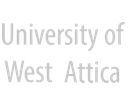Sustainable Development Literacy for Educators and Librarians
Abstract
Purpose – This paper aims to present and analyse the experiences and challenges during the development of sustainable development literacy (SDL) implemented in the context of the EDUCABILITY project.
Design/methodology/approach – It briefly discusses the methods and tools used to deliver a source mapping for SDL, a relevant Delphi Study, an SDL Curriculum and an e-Learning Module in the EDUCABILITY Virtual Learning Environment.
Findings – The systematic review of international literature and the results of the Delphi Study enabled the proposal of an SDL curriculum, including definitions, key concepts and content, learning objectives and outcomes, teaching approaches and evaluation methods.
Originality/value - The proposed educational materials enable the capacity of educators and librarians in SDL to apply it to different problems and various aspects of the same problem.
Keywords
References
IFLA. (2005). Beacons od Information Society: The Alexandria Proclamation on Information Literacy and Lifelong Learning. https://www.ifla.org/publications/beacons-of-the-information-society-the-alexandria-proclamation-on-information-literacy-and-lifelong-learning/.
Mackey, T. and Jacobson T. (2010). Reframing Information Literacy as a Metaliteracy. College & Research Libraries, 72, 62-78. DOI 10.5860/crl-76r1
Crary, S. (2019). Secondary Teacher Perceptions and Openness to Change Regarding Instruction in Information Literacy Skills, School Library Research, 22, 1-26. http://www.ala.org/aasl/slr/volume22/crary
EDUCABILITY. (2022). About us. https://educability.cut.ac.cy/about
Speight, S., & Morgan, W. (2014). E-learning for environmental sustainability: driving for change with an open online course. In L. Gómez Chova, A. López Martínez, and I. Candel Torres (eds.), Proceedings of EDULEARN14 (pp. 2891-2898). IATED Academy.
Sivapalan, S., Clifford, M. J., & Speight, S. (2016). Engineering education for sustainable development: using online learning to support the new paradigms. Australasian Journal of Engineering Education, 21(2), 61-73.
Van Eck, N. J., & Waltman, L. (2010). Software survey: VOSviewer, a computer program for bibliometric mapping. Scientometrics, 84(2), 523–538.
EDUCABILITY. (2023). Transnational Information Literacy Ecosystem Mapping (TILEM) – Book. https://educability.cut.ac.cy/I01
United Nations. (2023). Sustainable Development Goals. https://www.un.org/sustainabledevelopment/sustainable-development-goals/
Howard, P. (2012). Who will teach the teachers? Reorienting teacher education for the values of sustainability. In Bartels K. A. and Parker, K. A. (eds.). Teaching sustainability / teaching sustainably (pp. 149-157).
Hauke, P. (2018). From Information Literacy to Green Literacy: Training Librarians as Trainers for Sustainability Literacy [Conference presentation]. IFLA WLIC 2018 – Transform Libraries, Transform Societies, Session 116 - Library Theory and Research with Information Literacy. Kuala Lumpur, Malaysia. https://library.ifla.org/id/eprint/2147/
DOI: 10.26265/jiim.v7i2.4512
Refbacks
- There are currently no refbacks.






